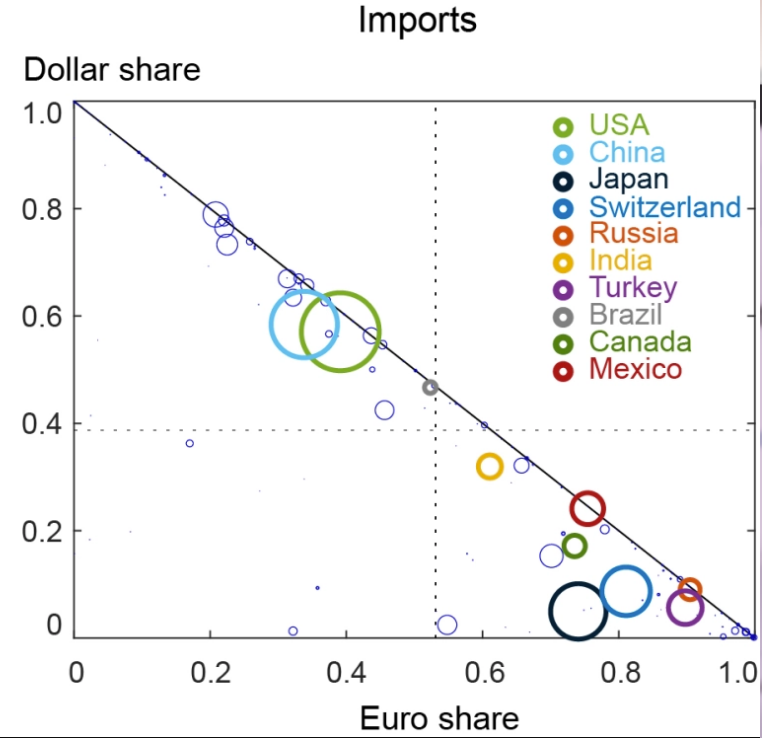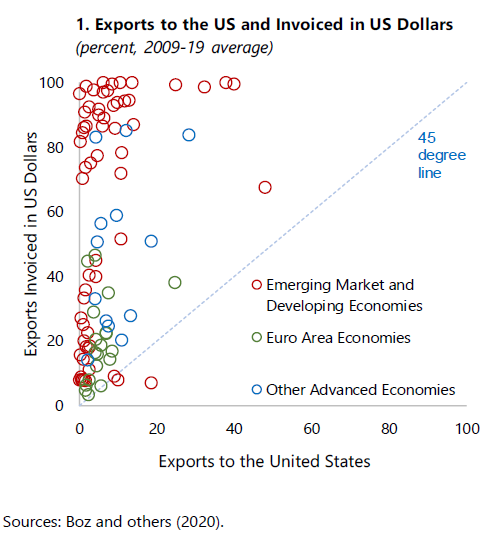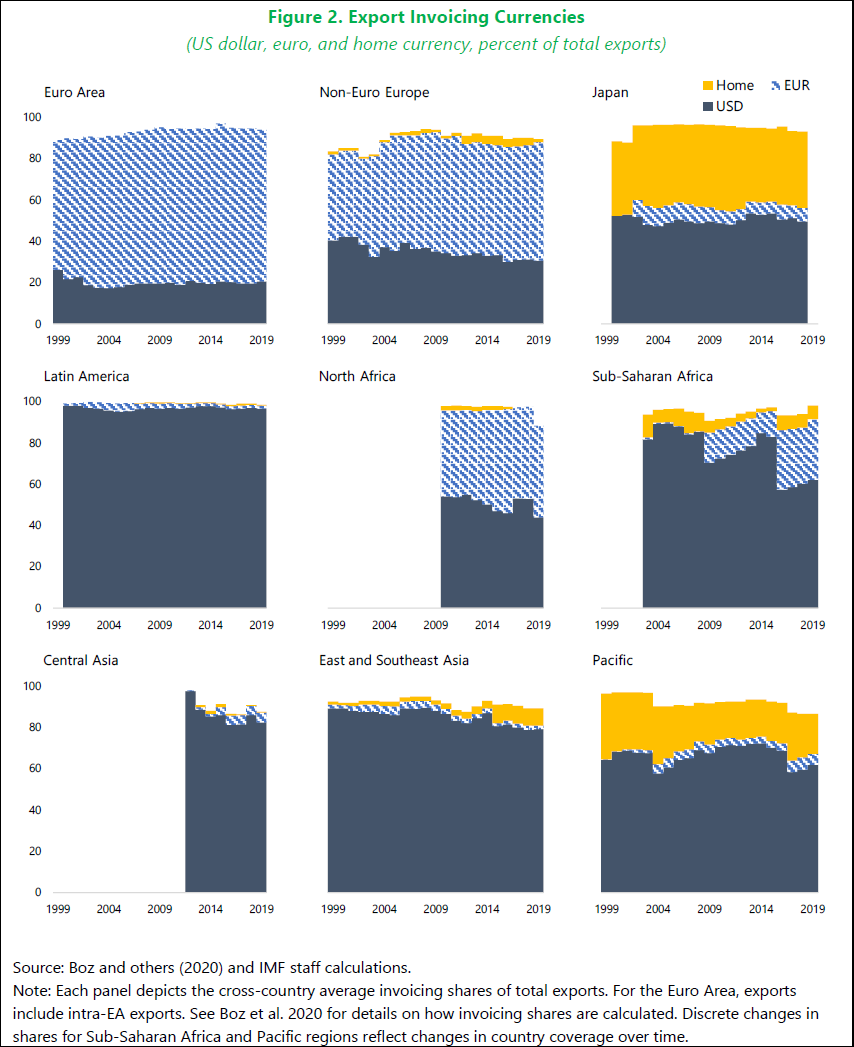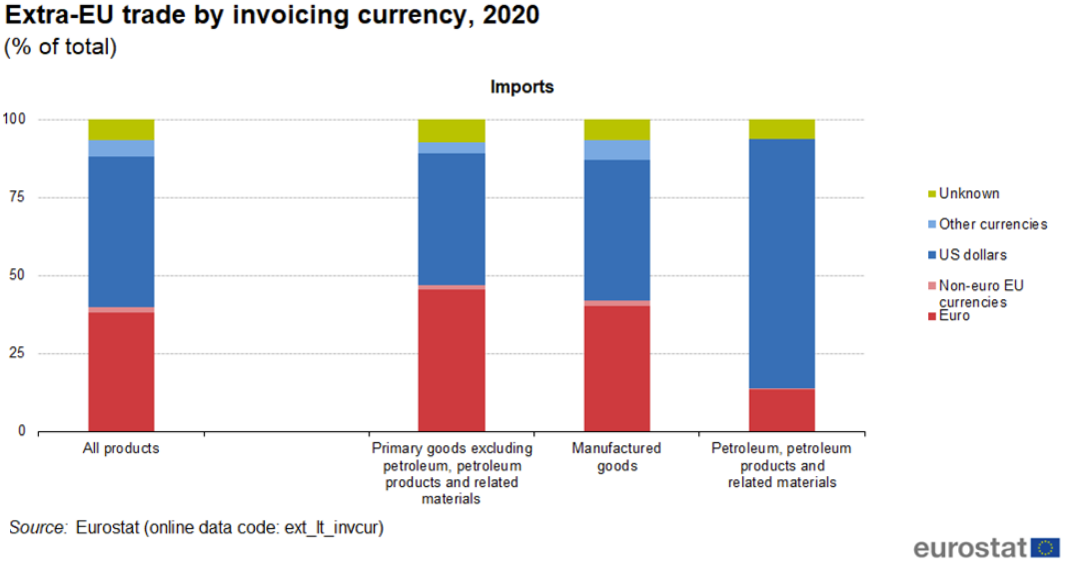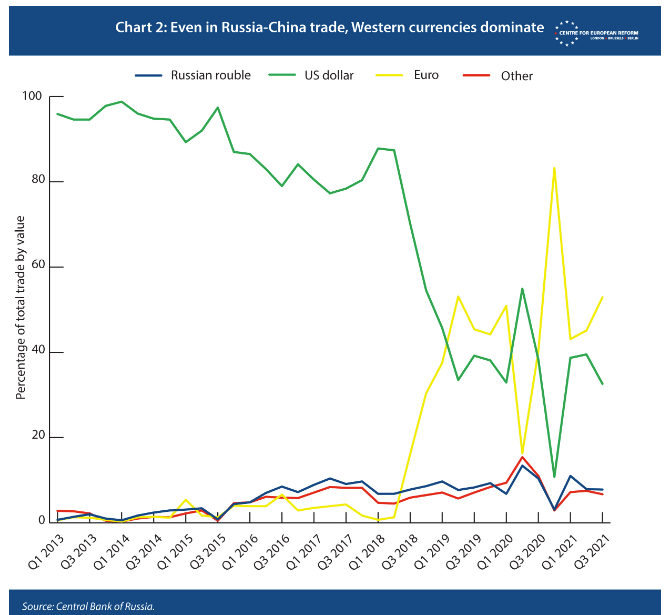Why is this newsworthy? ... is there something else here that I'm not aware of?
Short answer: Yes, changing the currency of payment in a contract is just a contract dispute and not really front page newsworthy (even if billion dollar companies are involved). The reason it became newsworthy is because Russia found a way to circumvent some sanctions imposed on it. And those who imposed the sanctions can't really do anything about it legally or politically in the short-term.
The longer answer involves foreign currency reserves, currency exchange rates and sanctions. So let's understand these basic international economic trade aspects first:
Foreign Exchange Reserves are assets - like foreign currencies, bonds, treasury bills, and other government securities - held by a country to ensure that a central government agency has backup funds if their national currency rapidly devalues or becomes entirely insolvent. (It's like a savings only for emergency use). For example, if the Russian currency suddenly falls in value, international traders won't accept it. In such cases, Russia can dip into its foreign currency reserve and trade with some other currency or gold or bonds etc..
Currency Exchange Rate is the value between two currencies that is determined based on various factors, majorly central bank interventions, the foreign trade they do, and the demand for a currency from others.
Sanctions are punitive measures imposed on one country by another country or an international organisation. These can also be actions that hurt another country economically.
After Russia invaded Ukraine, the United States, some EU countries and all their allies imposed some economic sanctions on Russia to punish it. One of the ways they did this was to seize Russia's foreign currency reserves and assets of Russian businesses in their country.
Russia's foreign exchange reserves were around $600+ billion. Unfortunately for Russia, its central bank partially held these funds in foreign countries too (which is a normal practice, especially if you trade with them a lot):
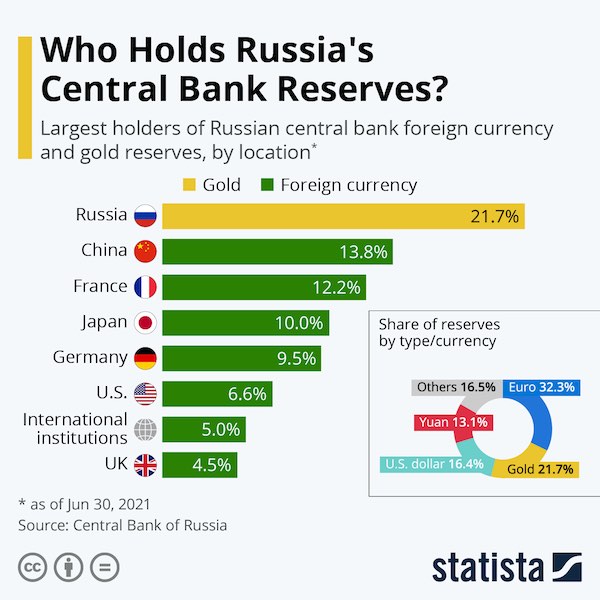
Thus, when sanctions were imposed these countries easily seized all Russian assets in their country:
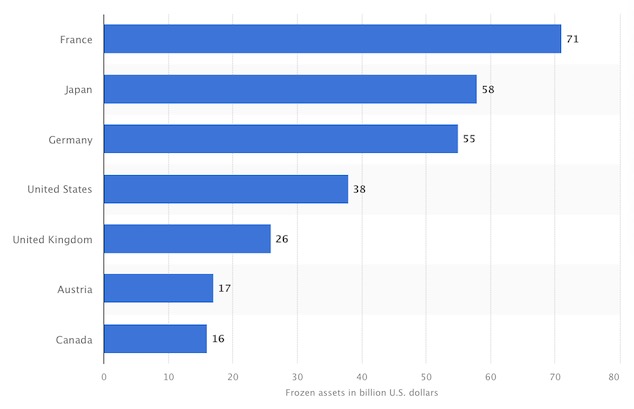
This meant Russia was denied from accessing around $300 billion of its own foreign currency reserves!
Moreover, further sanctions were being planned to completely cut off Russian banks from doing international money transfers using SWIFT. This meant that even if some Russian bank accounts in foreign countries were not seized, Russia would still not be able to easily access the money.
As everyone by now knows, the largest trade between Russia and EU countries is natural gas. (Reportedly, Russia supplies upto 40% of the gas Europe needs and earns around one billion dollar a month from them). This gas is sold through a Russian company called Gazprom. As is a normal practice in international trade, Gazprom too has bank accounts in foreign countries to accept payment for the gases it sells (in whatever currency that had been pre-negotiated between them).
(For those wondering why Russia didn't negotiate payment in Rubles itself, sometimes it is economically beneficial to receive payment in some other more stable currency).
Once many of these countries started imposing sanctions on Russia, a major worry for Russia and Gazprom was whether it would be able to access the funds it receives for the gas payment.
Gazprom sells it gas to European companies. If these European companies deposited the gas payment into Gazprom's foreign bank account in their country, their legal obligations are fulfilled. For all purposes, they have paid Gazprom. It is not their problem if their government has sanctioned Russia or Gazprom from getting their hand on this money. In effect, European companies could claim they were paying for the gas while the reality could be that due to sanctions Russia would not get any money in their hand.
Sanctions thus created the following problems for Russia:
- Payments made to non-Russian bank accounts could be seized.
- Payments made to non-Russian bank accounts could not be easily accessed.
- Currency conversion to Rubles could be blocked by foreign central banks.
- Payments in other currency created legal and economic issues for the buyer and the European countries.
(And remember that all these sanctions were also designed to cause damage to Russia's economy).
So Russia came up with a clever method to not only bypass some of these sanctions, but to also counter it in a way that would also strengthen its economy. It created a new payment mechanism (pdf) for all companies buying gas from it and asked them to:
- Open a foreign currency bank account with a Russian bank.
- Open another Ruble only bank account with the same Russian bank.
- Deposit the gas payment in Euros (or whatever currency stipulated in the contract) to the foreign currency account in the Russian bank.
- The Russian bank would then convert the Euros to Rubles and deposit it in the buyer's second Russian account.
- It would then transfer the Rubles from that account to the seller's (Gazprom) bank account.
The payment would be considered complete only when Gazprom received the payment in Rubles.
This was quite clever for the following reasons:
Allowing the European companies buying gas to pay in Euros first ensured they were technically adhering to the contract.
Asking them to transfer the Euros to a foreign currency account in Russia meant that Russia had the money in their hand (in a Russian bank).
This also meant that Russia's central bank couldn't be sanctioned as all large foreign currency transfers involve the central bank of the respective countries.
By insisting the buyer's payment obligation is fulfilled only with the last transfer when the Ruble funds are credited to Gazprom’s account, Russia ensured the foreign central banks couldn't block the currency conversion.
Converting foreign currencies to Rubles meant its value would shoot up in the international market and strengthen it.
By allowing payment in Euro first, Russia knew it would also strengthen the Euro currency rate as it was being used in a trade. (This meant EU nations would be less opposed to this tactic as they get minor economic benefits from it).
All in all, by insisting on this process of payment, Russia made sure that its Central Bank, and a few other large banks were not sanctioned and Russia made its Ruble the world’s top-performing currency for some time.
The fact that Russia managed to find a loophole to get payments in Roubles, while ensuring that it countered some of the economic sanctions imposed on it is why everyone was pissed.
